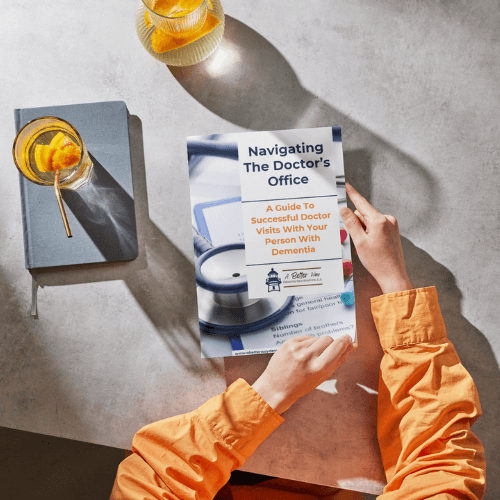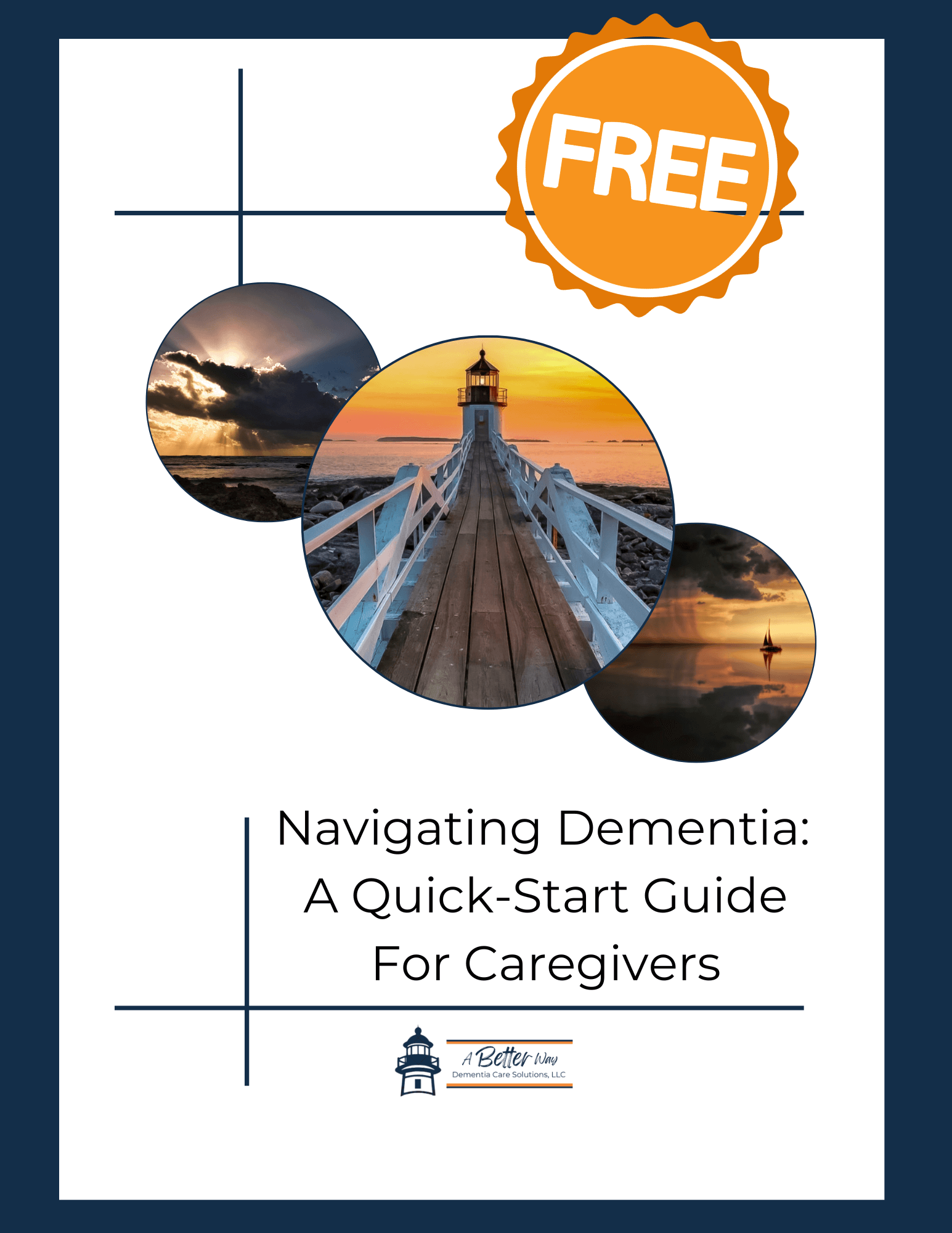
The start of a new year often inspires us to set resolutions—intentions that help us improve, grow, or regain control in some aspect of life. For dementia caregivers, this is an opportunity to make one of the most important resolutions of all: taking care of yourself. Dementia caregiving is an all-encompassing role, requiring patience, compassion, energy, and deep emotional resilience. Yet, many caregivers find themselves ignoring their own needs, slowly sacrificing their health and happiness for the sake of the person they care for.
The truth is, caregiving is a marathon, not a sprint. Without intentional self-care, burnout becomes a real risk, affecting not only your physical and mental well-being but also the quality of care you provide. If you’re hesitant about prioritizing yourself, let this blog be your permission to treat self-care as a necessity, not a luxury. In this post, we’ll break down why self-care is essential, the consequences of neglecting it, and simple, actionable strategies to help you prioritize your needs while balancing your role as a caregiver. Let this New Year be the moment you commit to nurturing yourself so you can continue to show up for the person you care for.
Why Self-Care Matters
The emotional, physical, and mental demands of dementia caregiving often lead caregivers to put their own health last. However, prioritizing self-care creates a strong foundation for sustainable caregiving. Here’s why it matters:
- Reduces Stress and Burnout: Constant caregiving without breaks can lead to physical exhaustion, emotional fatigue, and mental overwhelm. When you invest in self-care—through rest, relaxation, or enjoyable activities—you reset your energy levels, making you more resilient to daily stressors.
- Improves the Quality of Care: A caregiver who prioritizes their well-being can show up with more patience, empathy, and focus. When you feel rested and cared for, you’re better equipped to provide thoughtful, compassionate care to the person who depends on you.
- Preserves Your Physical Health: Neglecting self-care can weaken your immune system, increase your risk of chronic illnesses, and lead to fatigue. Eating well, staying active, and getting enough sleep are not only good for you—they’re essential to sustaining your caregiving role.
- Builds Emotional Resilience: Caregiving comes with a unique set of emotional challenges, including grief, frustration, and moments of helplessness. Taking time for yourself allows you to reflect, process emotions, and build coping skills that help you navigate tough days.
- Prevents Burnout and Overwhelm: Burnout doesn’t happen overnight; it’s a gradual process that occurs when you continually give without refilling your own emotional and physical cup. By prioritizing self-care, you create balance and protect yourself from burnout, allowing you to sustain caregiving for the long haul.
- Supports Mental Health: The psychological toll of caregiving can manifest as anxiety, depression, or chronic stress. Self-care practices like mindfulness, counseling, or relaxation techniques can help safeguard your mental health and offer emotional release.
- Models Healthy Behavior: If you’re caring for a family member, prioritizing your own well-being sets an important example for others. It demonstrates that self-care is an act of strength, not weakness, and encourages others to share responsibilities when needed.
The Consequences of Neglecting Self-Care
When self-care is neglected, caregivers face numerous risks:
- Chronic Fatigue: Lack of sleep and continuous emotional strain can result in exhaustion, making even simple tasks feel overwhelming.
- Physical Illness: Caregivers who don’t prioritize their health may experience weakened immune systems, weight changes, and increased risk of cardiovascular issues.
- Emotional Toll: Without breaks, stress and feelings of guilt or resentment can build up, negatively affecting your relationship with the person you care for.
- Cognitive Impairment: Caregiving stress can affect focus, memory, and decision-making, impairing your ability to provide effective care.
- Strained Relationships: Neglecting your own needs can create tension with family or friends, particularly if caregiving consumes all your time and energy.
Overcoming the Guilt of Self-Care
Many caregivers struggle with guilt when prioritizing themselves. It’s easy to think, “I don’t have time for this,” or, “I should be doing more for them.” But remember this: self-care is not selfish—it’s vital. When you’re healthier, happier, and less stressed, you are better for the person you care for. Think of self-care as an investment in your ability to show up as your best self.
To shift this mindset, remind yourself:
- You deserve care, too.
- Taking breaks makes you a better caregiver.
- Your health and well-being matter just as much as anyone else’s.
If guilt persists, start small. Even a 10-minute walk or five minutes of deep breathing can make a difference.
Actionable Steps to Prioritize Self-Care
If you’re ready to commit to better self-care in the New Year, here are simple ways to start:
- Schedule Daily Breaks: Set aside even 10-15 minutes a day just for you—whether it’s to drink tea in peace, meditate, or stretch.
- Build a Support Network: Don’t be afraid to ask for help. Friends, family, or professional respite care can provide you with much-needed time off.
- Practice Gratitude: Write down three small things you’re grateful for each day. Shifting your mindset can improve emotional resilience.
- Set Boundaries: Learn to say no to tasks that stretch you too thin. Protect your time and energy.
- Incorporate Movement: Exercise—even gentle stretching—releases endorphins, boosts mood, and reduces stress.
- Prioritize Sleep: Aim for 7-8 hours of sleep each night to reset your body and mind.
- Try Mindfulness Practices: Deep breathing, journaling, or short meditation sessions can offer clarity and calm.
- Engage in a Hobby: Reconnect with something you love—reading, crafting, gardening, or music.
- Use Respite Services: Respite care is designed to give caregivers time to recharge. Take advantage of it.
- Check in with a Therapist or Support Group: Speaking with professionals or other caregivers can provide encouragement, tools, and community.
Product Recommendations for Self-Care
- Tea Sampler Gift Set: Perfect for creating a relaxing ritual at home. check it out on etsy
- Aromatherapy Diffuser: Use calming essential oils like lavender to create a peaceful environment. check it out on amazon
- Comfortable Walking Shoes: Encourage daily walks with supportive, high-quality shoes. check it out on amazon
- Weighted Eye Mask: Improve relaxation and promote better sleep. check it out on amazon
Conclusion
Self-care isn’t optional—it’s essential. By prioritizing your physical, emotional, and mental well-being, you ensure that you can continue to provide the best possible care. This New Year, make a promise to yourself: to show up for you as much as you show up for the person you care for. Start small, celebrate each win, and remember that investing in your health is one of the greatest gifts you can give yourself and the person you care for.
Call to Action:
Join Our Private Caregiver Community
If you're looking for a safe space to share your caregiving experiences, ask questions, or simply connect with others who understand the challenges you face, join our private Facebook support group for caregivers. It's a supportive, empathetic community where you can find encouragement and answers when you need them most. Click here to join.
Subscribe to Our Newsletter & Download Your Free E-Book
For more valuable tips, resources, and updates on dementia care, click here to subscribe to our newsletter today!
Looking for activities to try with the person you are caring for? To explore dementia-friendly games and activities in our Etsy shop, click here.
To help you prepare for and manage doctor’s appointments with the person you care for, click here to receive our free downloadable e-book, Navigating the Doctor's Office: A Caregiver’s Guide.

Affiliate Disclosure
A Better Way - Dementia Care Solutions, LLC participates in the Amazon Associates Program, which means we earn a small commission when you buy through links on our site, at no extra cost to you. We only recommend products that we believe can help caregivers on their journey.
Disclaimer: The information provided in this blog is for educational purposes only and should not be considered medical advice. Always consult with a doctor or a licensed physical therapist before starting any new exercise routine, using assistive devices, or following the recommendations mentioned. Every individual’s needs are different, and professional guidance is essential to ensure safety and appropriateness of care.
Want to keep figuring this out together?
Subscribe to Finding Our Way in Dementia Care and get honest stories, helpful tips, and gentle support delivered to your inbox every week. Just real talk, grounded care, and space to breathe.
Subscribe to Finding Our Way in Dementia Care and get honest stories, helpful tips, and gentle support delivered to your inbox every week. Just real talk, grounded care, and space to breathe.
Kind truth. Clear steps. Warm guide.

















0 Comments